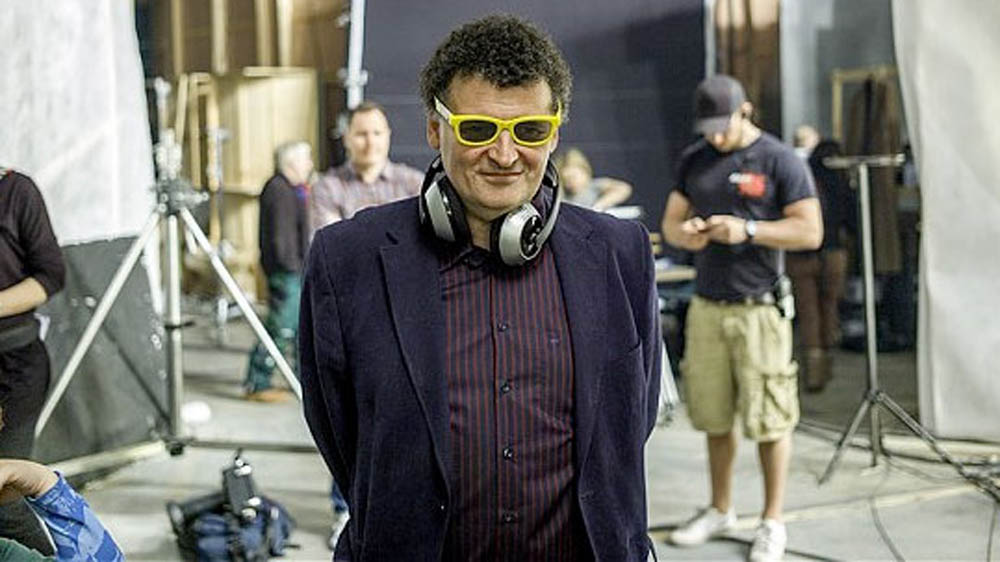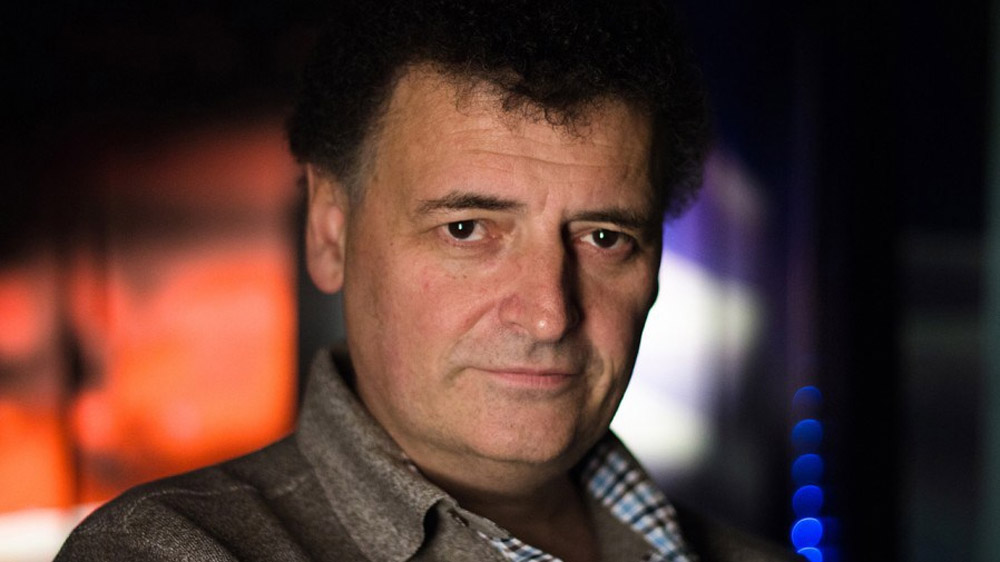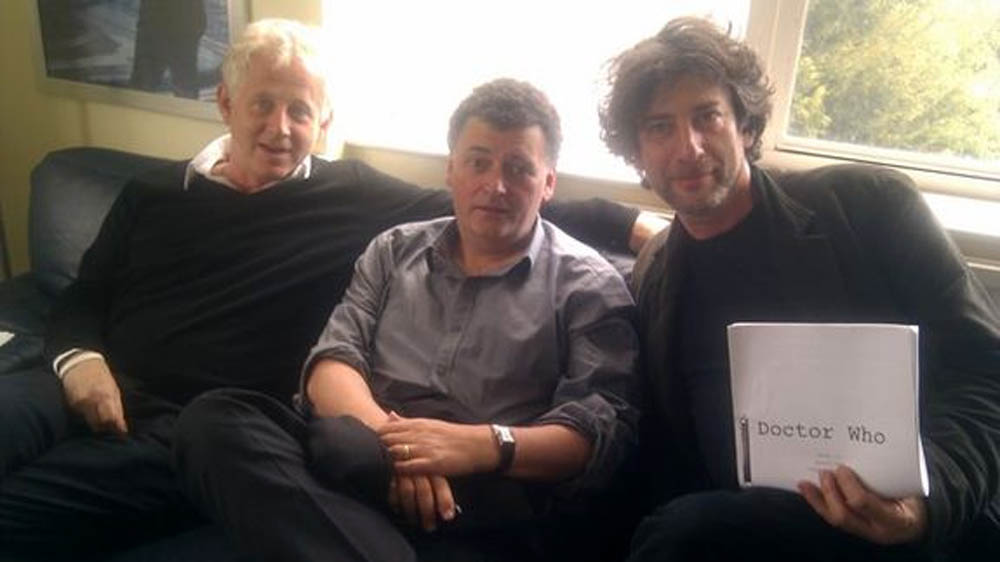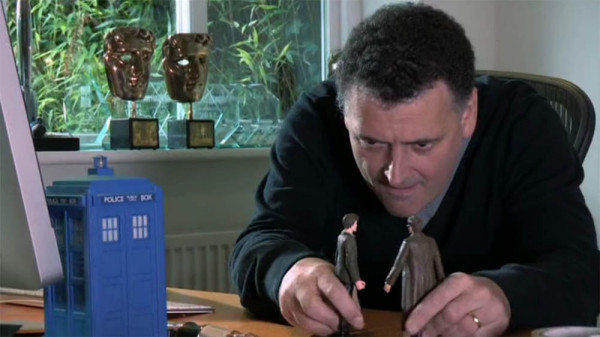So, the recently confirmed tenth season of Doctor Who will see head honcho, lead writer and Master of Nightmares Steven Moffat remaining with the programme.
This would mean he has been responsible for the production of six seasons of the show; a total of over 80 episodes if current rates are maintained.
While certain corners of the web have been rather vocally suggesting it is time for a change at the top, we decided to look at the many positive reasons for keeping Mr Moffat precisely where he is.
Versatility

Although he’s often focused on the grand design – opening and closing a season on an epic scale with events like rebooting the universe or re-writing the Doctor’s personal timeline – ‘Listen’ proved that Mr Moffat has lost none of abilities in terms of fear factor.
While the Eleventh Doctor’s era introduced the reassuring Victorian allies of the Paternoster Gang, the Twelfth looks set to spend more time in the present with Kate Stewart and a revitalised UNIT.
Moffat has admitted that Season 7 perhaps began to rely too heavily on certain tropes and there seemed to be a conscious awareness in avoiding these in Season 8.
He has also reinvented the Master for a new generation, bringing the Doctor’s childhood friend back like never before and finally laying to rest the question of Time Lord gender-swapping capabilities.
International success

While RTD restored Doctor Who to a grateful nation, it is fair to say that under his successor the show has truly been embraced by the world. Doctor Who is now a global hit and the 50th Anniversary was a real international television event that would have failed utterly if the script had been too inward looking and overly nostalgic.
Of course it’s a Doctor Who fan’s job to fret about the show’s future, but with cinema screenings of episodes and a World Tour to launch the Twelfth Doctor, it’s hard to deny that that the programme is in rude health!
Format

Doctor Who has always embraced change. From 2005 until David Tennant’s departure, each new season came with a fresh face in the main cast.
While more stable in that department, Moffat’s tenure has brought frequent shake-ups to the show’s format. Season 5 essentially kept to the established structure of one and two-parters, but Season 6 embraced a full-length, densely plotted arc with a game-changing cliffhanger in the middle as we followed the tale of River Song.
Season 7 moved into the realm of “slutty titles and movie-poster plots” (with admittedly varying degrees of success), while last year’s Season 8 pulled us back to reality slightly by bringing Clara to the fore and focusing on her relationship with a difficult new Doctor who was getting to know himself.
Season 9 appears to be embracing the classic era’s format with a run of two-part stories following the “glory years of the Doctor and Clara”.
Writers

In terms of writing talent, Moffat is doing plenty to bring in fresh voices to complement the core team. Neil Cross (Luther) made two contributions to Season 7, while Peter Harness (Jonathan Strange and Mr Norrell) and Jamie Mathieson (Being Human) both made their debut in Season 8 and are back for more this year, along with Torchwood‘s Catherine Tregenna and another Being Human writer, Sarah Dollard.
There have also been memorable contributions from Moffat’s comedy connections with Richard Curtis and Simon Nye (Men Behaving Badly) writing for Season 5, as well as the coup of bringing Neil Gaiman to the fold.
Continued…

